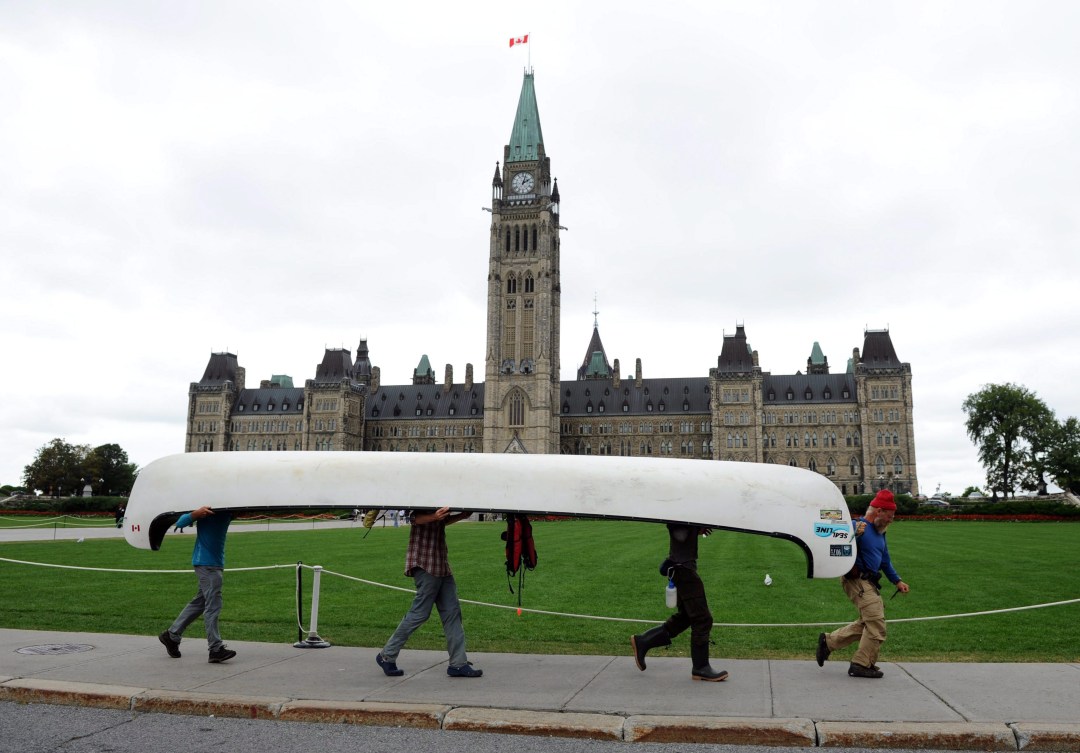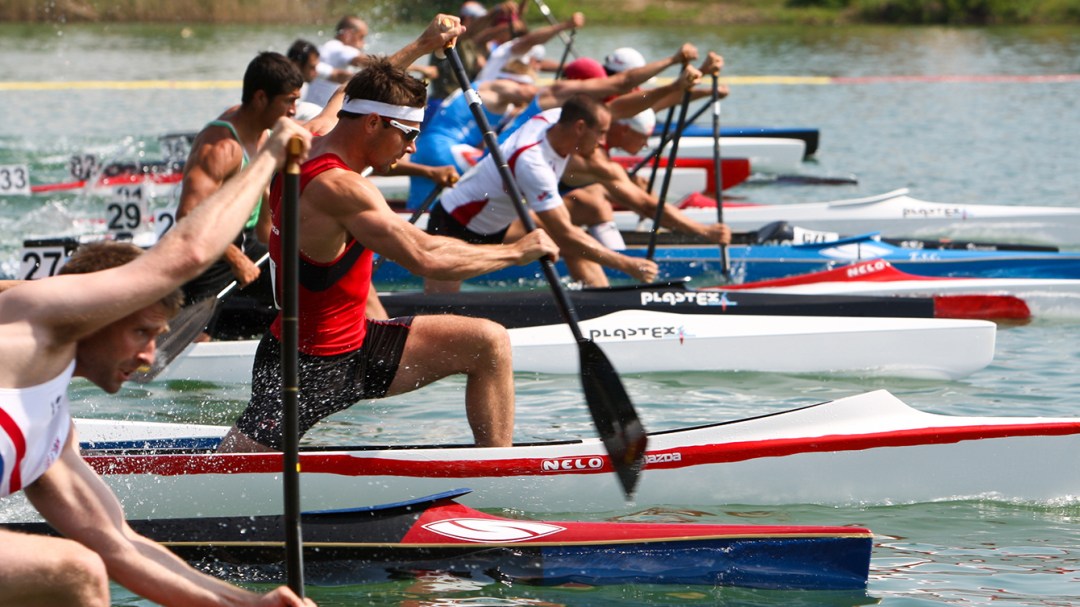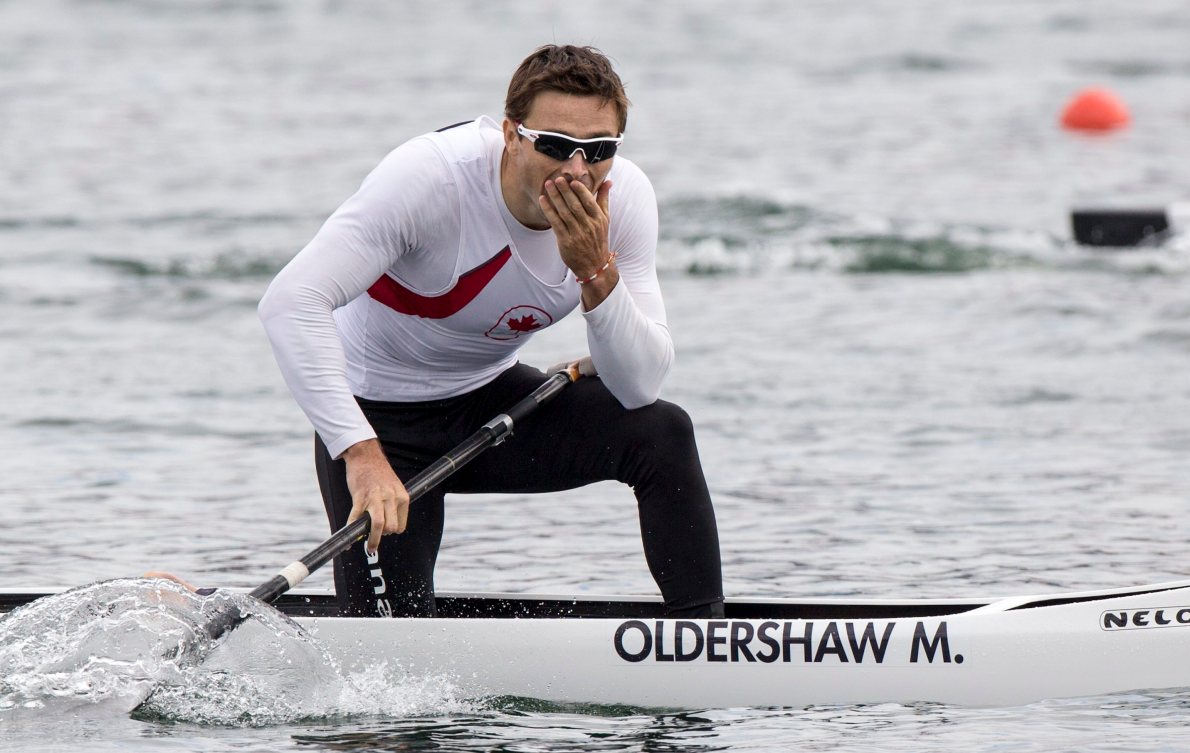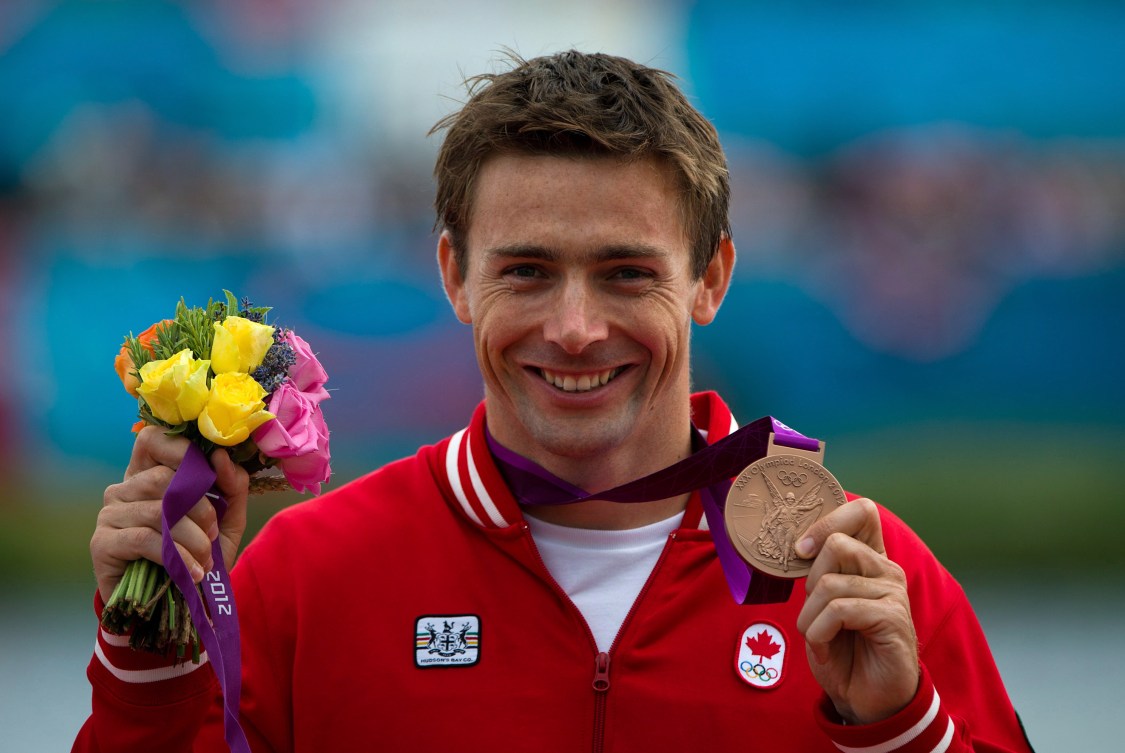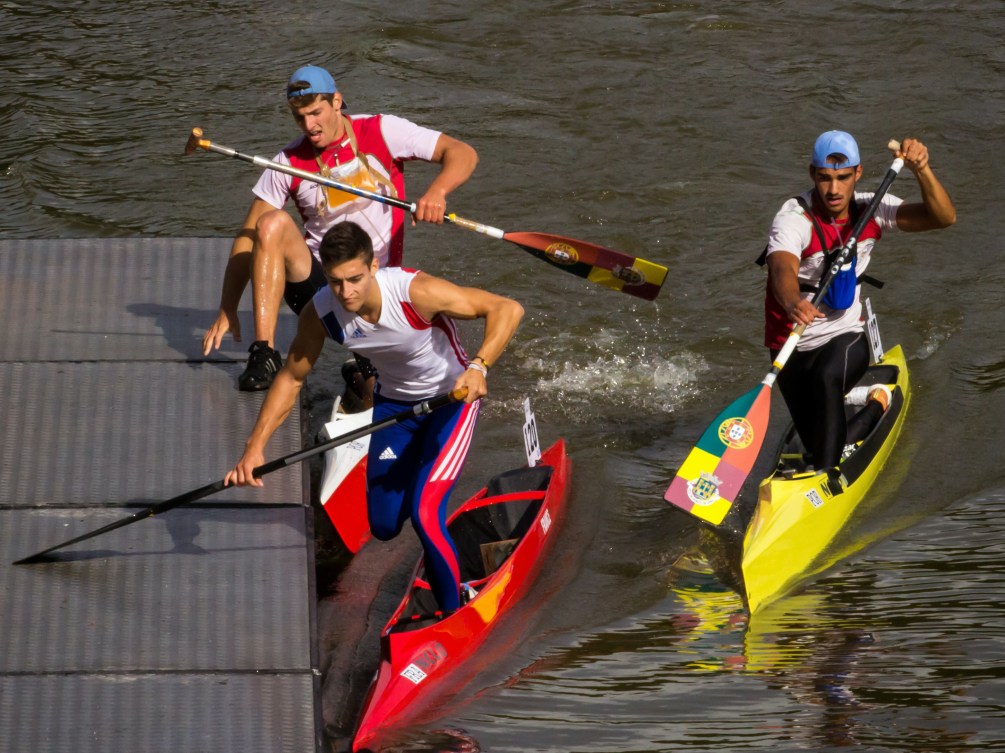Canoer Mark Oldershaw brings the portage out of the woods
The canoe is a treasured Canadian vessel. We have lakes to explore and rivers to cross. Remember the long green boats from summer camp with space for supplies and wooden paddles that give you blisters?
Olympic medallist Mark Oldershaw races in a very different type of canoe: Different from summer camp, but it’s still a canoe.
Oldershaw wields a paddle, much lighter than the heavy slabs of wood we remember. If you happened to possess the immense core strength required to stay upright in an Olympic canoe, paddling at the very least, would be a familiar motion.
So if the canoe is our most classic ship, and Oldershaw our most well known captain, who better to compete in a world event that adds a famous Canadian workaround?
The portage.
Over the weekend Oldershaw raced at the Canoe Marathon World Championships in Copenhagen, Denmark on a 28.5 kilometre course including, 6 portages.
He finished 7th in a time of 2 hours 10 minutes and 38 seconds. Mãrton Kãvãr of Hungary was 1st in 2 hours 3 minutes and 22 seconds.
This distance is new for Oldershaw, whose Olympic experience is over the sprint distances, “I’ve only done three or four, still pretty new to it. It’s basically perfect for our fall training, it’s when we get the base fitness for the rest of the year”, he says.
The marathon is not an Olympic event but the training value is obvious. The distance is nearly 30 times longer than the event in which Oldershaw won his C1 Olympic medal in London.
Aside from paddling for more than two hours on one knee, the race features a modern portage. Forget visions of a flipped canoe and a slow traverse through the Canadian wilderness.
“It’s a 100-200m run,” says OIdershaw, “It’s a mad sprint for the dock and an aspect of canoe we don’t get in other races. You can win or lose a race based on your run.”
In the spirit of the settlers who carried their boats over land out of necessity, the marathon portage also has an element of camaraderie among competitors.
“There’s a lot of working together. It looks like a lot of fun with the excitement of big groups coming into the dock, dragging their canoes along the ground,” Oldershaw observes, “the portages really tired you out, legs are super tired, every race you have a lot of people dropping out.”
Three of the 17 who began the race on Saturday didn’t finish including Canadian Jon Pike.
It certainly isn’t the all-out sprint Oldershaw is familiar with and the 30 year old gets through it any way he can: “You’re just looking to people around to beat. There are issues like cramping and dehydration. There’s always someone around you who can race, but by the time you’re almost done you just want to finish.”
While the race is not Oldershaw’s specialty and the portage is not unique to Canada, this big country is a place where the manoeuver is ideally suited.
And just as the boat has its connections to Canadiana, (the Germans colloquially call a canoe a ‘Canadian’), Mark Oldershaw has earned his reputation as our country’s master of the discipline.
